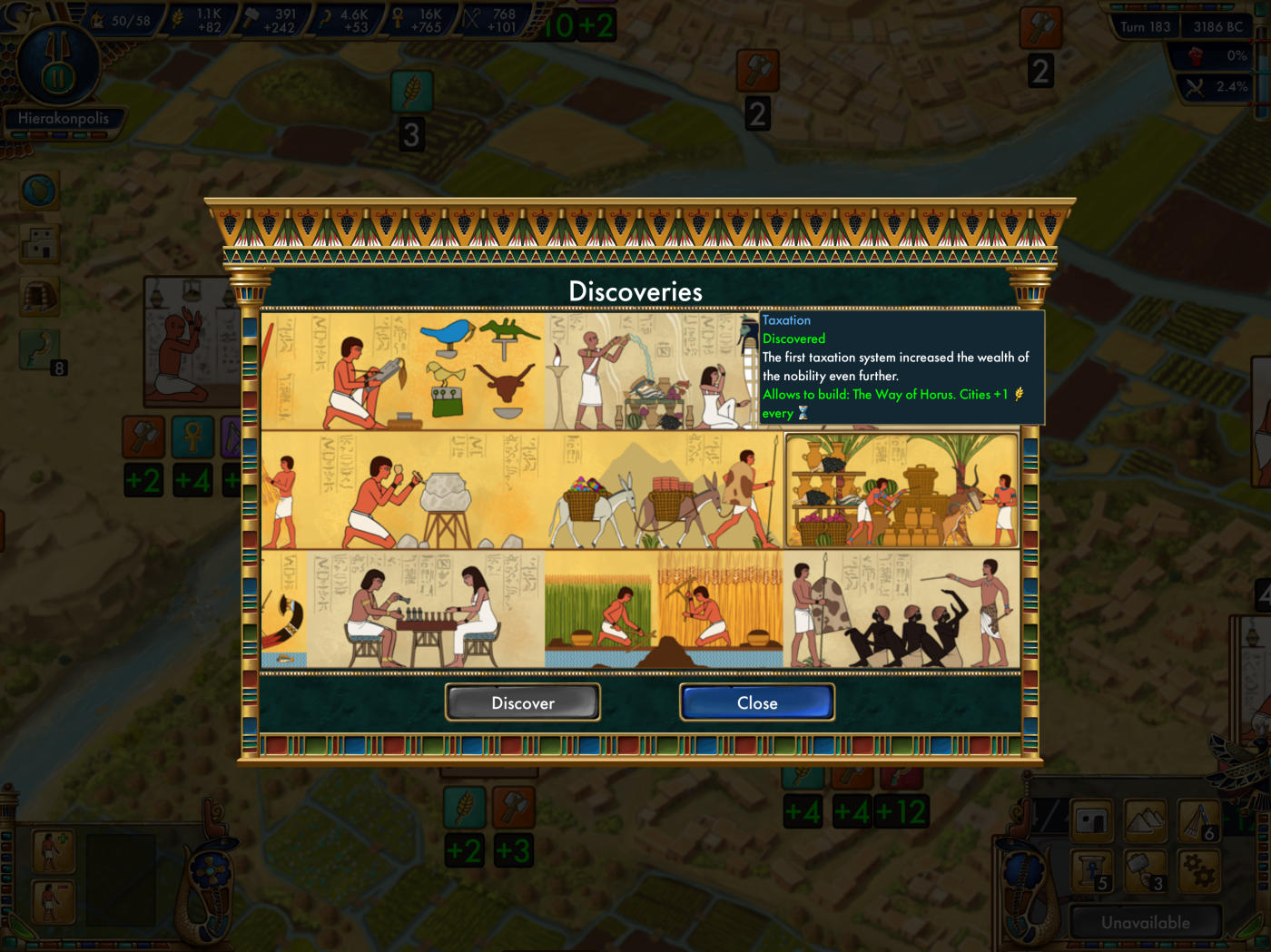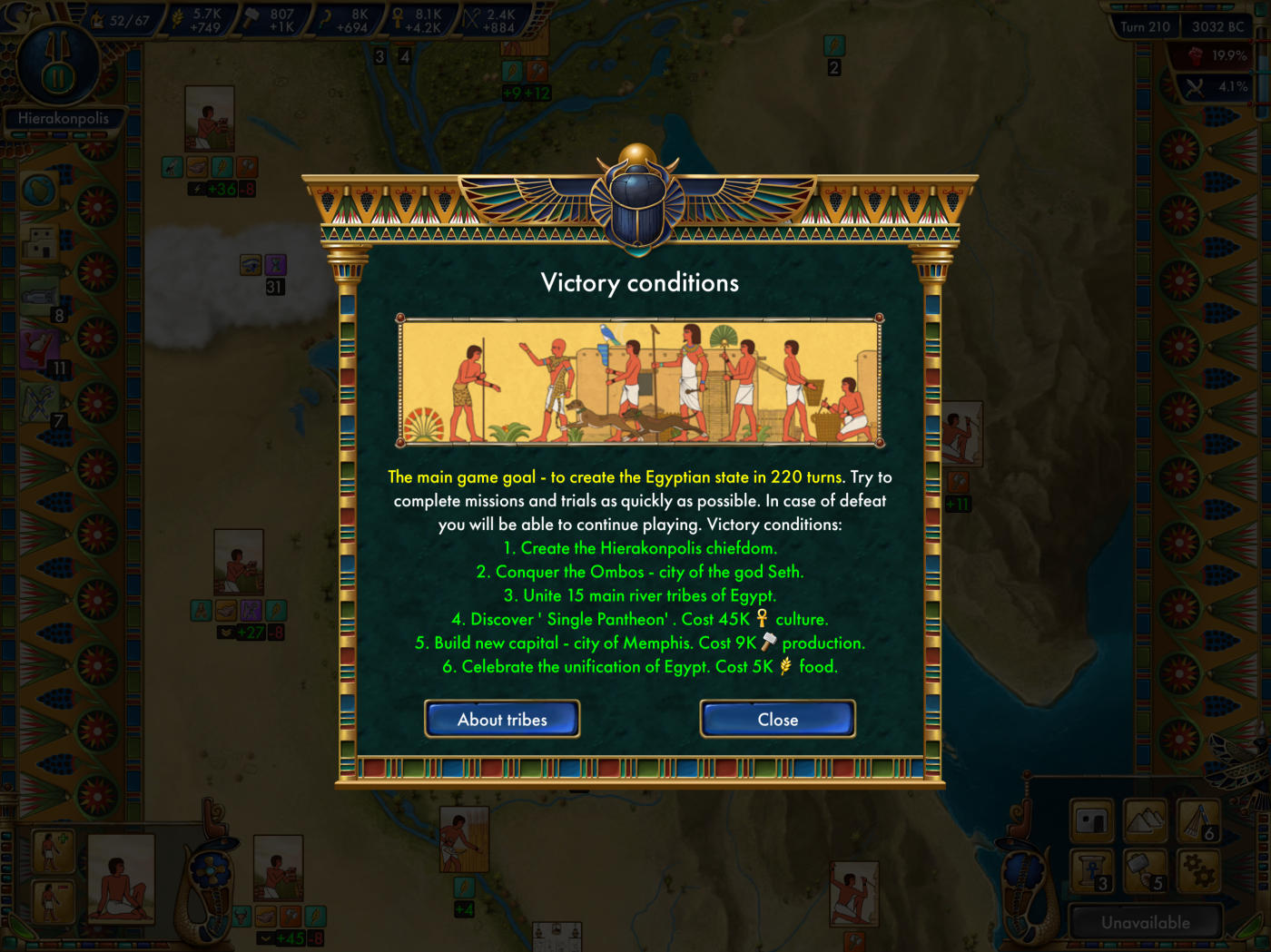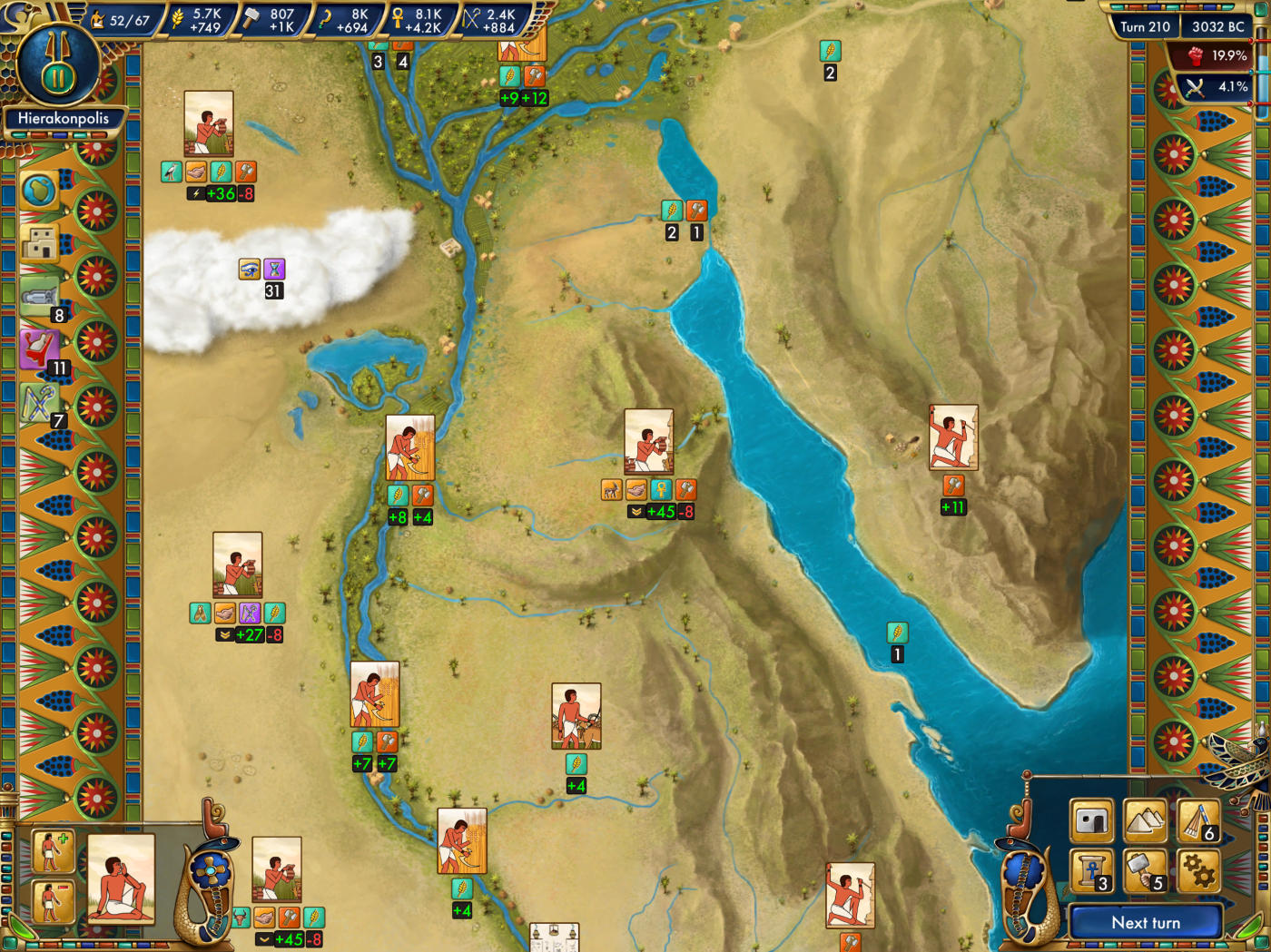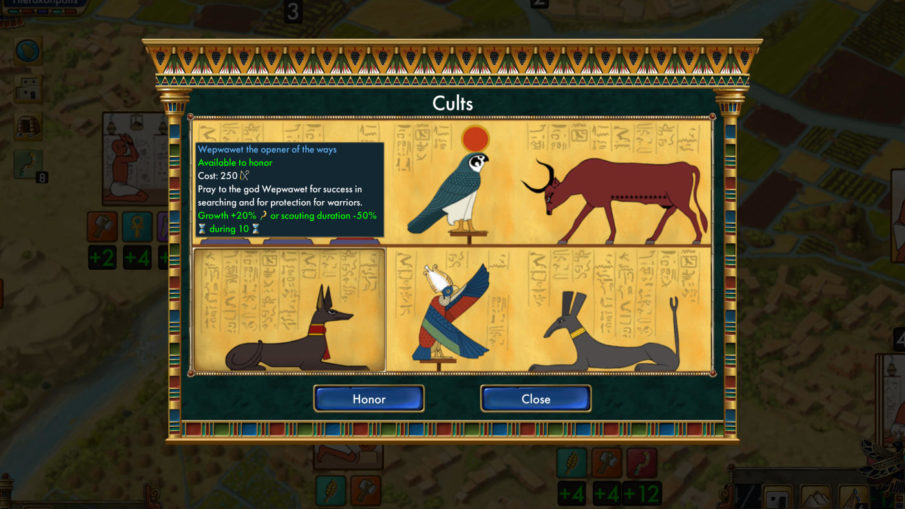iOS, Android, PC/Mac/Linux •
“What game had you up so late last night,” my wife asked. I had been up until 1 AM or so, a rare thing is the age of the barbarian-monkey children, aka our seven-year old twin boys.
“Predynastic Egypt,” I replied and was quickly greeted with a look of confusion. I explained it was a game set in Egypt, but well before the pyramids. It was a strategy simulation covering two millennia of ancient Egyptian history where you play as a nomadic tribe and grow that tribe, turn by turn, from humble origins toward the ultimate goal of unifying Egypt under your control within 220 turns. “Oooh, I want to play it,” was her immediate response. [Nick’s wife is cooler than my wife. Mine just elbowed me in the back and called me an idiot. -ed.]
Predynastic Egypt is accurately named but, with a name that sounds like a Discovery Channel documentary that devolves into talk of aliens building the pyramids, it does little to attract new players. Luckily, the game rises above its rather bland moniker. It’s a game of exploration, population and resource management, construction and territorial expansion, technological and cultural advancement, trade, and warfare. It pretty much covers all the bases.

As a nomadic tribe you start with a small territory in a much larger region. You must grow your tribe, explore the area around you, and move from the stressful hunter-gatherer life to one of peaceful farming and static settlements. It’s kind of like Green Acres, but without all the annoying neighbors. Gameplay is guided by a series of increasingly difficult goals which, when completed, provide a one-time bonus and ultimately lead toward fulfilling the game’s six victory conditions.

Exploration opens up new areas from which you can secure the game’s necessary resources simply by placing one or more workers upon it. There are five primary resources in the game. Food supports life in your settlement and is consumed based on your population, or traded away for other resources. Production is tools, raw materials, household and luxury items–the things people gather and create other than food. Army is an indication of military potential, your troops and their experience, equipment, and supplies. Culture comes from production, population, events, and discoveries made. As you gain culture you can unlock discoveries and advancements like the domestication of dogs and cattle, pasturelands, brewing, tolls, religious advancements, and taxation. Authority represents people’s respect for their leader and is necessary to support difficult choices and commands, as well as to call upon gods to provide a boon. Boons do things like help accelerate building, reduce the chance of rebellion, improve military readiness, and enhance settlement growth—all for just a few turns.

You’ll face your share of challenges in a game of Predynastic Egypt. Drought, epidemic, civil war, invasion, the demands of a growing aristocracy, rulers in need of grand tombs before their demise, and other difficulties and disasters will interrupt your ambitions of unification. Many of these come in the form of trials, timed events that come with a warning, giving you time to prepare.
I found gameplay to be simple but compelling. Turns are quick compared to other titles in the empire-building genre and there are far fewer decisions and micro-management necessary than its peers. Battle is not interactive, for example, and once it’s begun you’re only real option is to flee. Victory most often goes to the side that brings the most warriors, though random events like the fall of a commander can swing a battle. This may turn off some players, but I suspect it’ll be welcome to far more who don’t want to get into the play-by-play of conquering all of Egypt. Warfare is but a part of the game, after all, and just one method of accomplishing your goal. It is possible and often far easier to unite with another tribe with whom you have good relations, for example.

There’s a lot more than gameplay to love about Predynastic Egypt. The graphics are simple and attractive and center on beautiful maps of both your starting region and a larger scale view of Egypt. The music and sound effects match the theme perfectly and add to an excellent aesthetic. I finished my first game in about six hours played over two lengthily play sessions—it was that hard to put down. Replayability is somewhat limited by a lack of starting variables. You can alter the difficulty however, which changes the experience quite a bit. I’ve started a second, much more difficult campaign to make use of my lessons learned and can confirm it makes a big difference. Beyond replaying for greater challenge, I could see coming back now and then just to enjoy the gameplay experience.
Predynastic Egypt is a great game for history buffs and gamers who appreciate a strong theme with complimentary mechanics. It’s also perfect for those who are looking for a lightweight, attractive, and compelling foray into the world conquering strategy genre. If you’re looking for a deeper title, something more akin to Rome: Total War, or want a game that’s unendingly replayable due to a wealth of different starting options, you may want to look elsewhere.
- Predynastic Egypt for iOS Universal, $5
- Predynastic Egypt for Android, $6
- Predynastic Egypt for PC/Mac/Linux via Steam, $10



Start the discussion at discourse.statelyplay.com